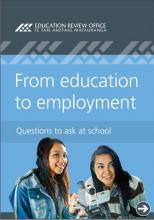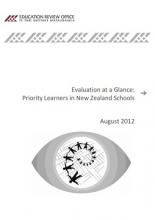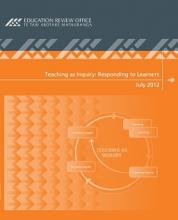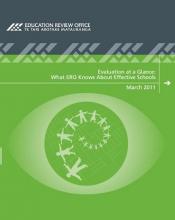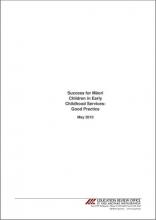From education to employment
From Education to Employment is about how you and the school can help prepare your child for life beyond school. It will be useful for parents, families, trustees and students at secondary school.
ERO guides for parents have been written for everyone who parents a child - those who have care and responsibility for children attending a school. The booklets include questions you can ask, as well as general information that you may find useful. Click on the booklet to read and download.
